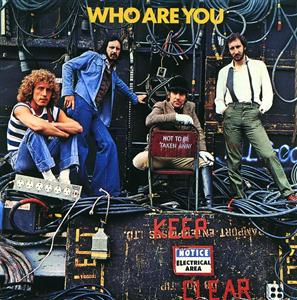Google+ has seen unprecedented adoption over the last month and it is clearly the best social effort Google has produced to date.
But why is Google pursuing social in the first place?
G+
Some see G+ as proof that Google is chasing tail lights, while others see it as a natural extension of Google’s mission, which is ‘to organize the world’s information and make it universally accessible and useful.’ In this instance, that information is social in nature.
I see two compelling reasons behind G+: search and advertising.
G+ provides Google with a primary source of social data to mine and use for search purposes. Can you blame Google for not wanting to rely on Twitter or Facebook for social signals?
G+ also seeks to break the stranglehold Facebook has on attention. This is important because the ad business runs on attention. If you’re on Facebook for 55 minutes a day, that leaves less time for other sites. G+ doesn’t have to beat Facebook it simply needs to fracture its monopoly on attention.
Identity

One of the more controversial aspects of Google+ has been Google’s insistence on people using real names.
Google Profiles is a product that works best in the identified state. This way you can be certain you’re connecting with the right person, and others will have confidence knowing that there is someone real behind the profile they’re checking out. For this reason, Google Profiles requires you to use the name that you commonly go by in daily life.
I probably won’t make many friends by saying I completely agree with this policy.
Some believe that sacrificing anonymity will sacrifice risk-taking, honesty and whistle-blowing. There may be less of that, but it won’t stop. And is it so bad to encourage people to take risks and be honest without the crutch of anonymity? For those of you who think I’m not personally aware of the issues here, let me disabuse you of that notion.
Back in 2008 I dashed off a quick email to the editor of The Contra Costa Times. It wound up in the paper and was attributed with my name and city. About a week later I got this in the mail.

This person found my address (which was not in the paper) and sent me this erudite note. It was unsigned and did not have a return address. It was a bit chilling. Yet, the anonymity used belies a cowardly nature. This person also can’t seem to get my name right, but who cares about details like that when you just want to call someone names.
I’m not saying all anonymity leads to this type of behavior. Nor do I downplay the need for anonymity in certain situations. Speaking out in other countries could have dire consequences. But one of the reasons people embraced Facebook’s new commenting system was the fact that identity would reduce spam and needless flame wars. No more anonymous pot shots from the peanut gallery.
Could Google be doing a better job in how they handle the policy? Yes. But I believe they’re far more concerned with ensuring that spam doesn’t enter this new ecosystem, both for user experience and data integrity.
What’s In A Name?

I don’t think Google is saying you have to use your true name. I’m assuming that Mark Twain could sign up, but so could Samuel Clemens. And it’s not that hard to set up a new persona online. Maybe we’d even see profiles for both Neil Caffrey and Nick Halden.
But why does Google care so much about identity, particularly on G+? What does it really do for them? Here’s where I think the rubber really meets the road.
Identity allows Google to map the web of people.
Since Google launched, they’ve indexed the web using links. That’s worked amazingly well, despite what many competitors and faux-academics have contended. Mind you, there’s still a lot of room for improvement.
Today we know that there are people behind sites and documents. Facebook understood that people were ‘hiding’ behind websites and they wanted to reveal who was visiting (and Liking) those sites. Google, on the other hand, seems more interested in who created those websites and documents. They’re looking to augment the web of links with the web of people. That’s why identity is so important.
Without identity Google can’t create a web of people. They can’t mine the interactions on G+ to determine trust and influence. They need a primary key for establishing a new social database and name makes a whole lot of sense.
Yes, Google will want alternate email addresses, pseudonyms and even usernames, but they need something to pivot around. Mapping the social graph necessitates this type of approach. Google’s already pretty good at this, which is why you may be presented with suggested links in your Google Profile. One look at your Social Connections should give you an idea of how much Google knows. (Really, go look at this today!)
SEO

The carrot that Google can wave to encourage identity is search. Rel=”author” is the first overt way that Google is rewarding identity in search results. But that’s just the tip of the iceberg as far as I can tell.
Getting your smiling mug on search results will certainly help your click-through rate and boost your ego, but long term Google can begin to map all of your social interactions. They’ll encourage you to link more and more of your digital self so they can confidently perform this analysis.
I’m a firm believer that Google has a GIGO problem. The explosion of digital content has made everyone an author, an expert and pundit. Jason Calacanis certainly doesn’t suffer fools gladly.
There are a lot of stupid people out there … and stupid people shouldn’t write.
I don’t agree with that statement but I do with what Jason said next.
There needs to be a better system for tuning down the stupid people and tuning up the smart people.
Google needs a better way to sift through and determine quality in an age where content can be produced and distributed with such ease.
Instead of going from the document level and building up, what if you used an ‘author’ filter? Google’s Panda update created an A and B pile for site quality. Google could do the same for author quality. Yes, it’s a scary thought that Google might pass judgement on your corpus of content, but in the end that’s pretty much their job.
This doesn’t mean that B pile authored content wouldn’t rank, but it may need to exhibit other signals to outrank A pile authored content.
AuthorRank

AuthorRank will help augment the rickety link graph. The reliance on a Google Profile, insistence on a real name, the implementation of rel=”author” and the whole of G+ makes me believe that authorship is a vital part of how Google wants to measure the web. I’m hopeful that Google can determine a better way to measure these social gestures, beyond what Klout, PeerIndex or others currently provide.
Could Google transform trust and influence from a popularity contest to a meritocracy?
Google could look at the speed of sharing. If the time between my interaction with that content and my sharing of that content is too short, I’d like that to count less. This may eliminate much of the robo-syndication that persists today and even reduce the sheep and ego mentality of promoting luminary content.
In addition, comments are a rich source of data, both as meta data on the shared piece of content but as a signal of depth and breadth of engagement. You’ll have noted that some of the Internet famous get a slew of comments on G+. But how many of them are in the ‘brilliant post’, ‘totally agree’ and ‘Yes!’ variety? What percentage of your comments are productive versus congratulatory?
AuthorRank could provide real value to search right out of the gate. Imagine if blogs without real identity were given less prominence? Suddenly splogs would disappear as would many of the exact match keyword domains with MFA (Made for AdSense or Made for Amazon) content.
TL;DR
Google+ requires identity so it can confidently map a web of people and use authorship to better refine search results. In the process, and as an added bonus, they may also break Facebook’s monopoly on attention.
The Next Post: Image Search in Google Analytics
The Previous Post: The Pen Salesman

7 trackbacks/pingbacks
Comments About Google Plus, Identity and SEO
// 16 comments so far.
Rick Bucich // July 25th 2011
AJ –
I think there is another reason to preserve actual identities that I haven’t seen widely discussed, legal implications.
While from a business perspective, everything you mentioned makes perfect sense. Anonymity would also likely contribute to an abundance of trolls which might scare away the common user and hurt the experience.
Back to legal ramifications, think about the fact that Google+ is very photo friendly.
With anonymity, not only would it be easier to post unsuitable material, it could also lead to the exposure of minors to said media. This is a huge liability issue which Google must show that it is doing everything it its power to prevent. The precedent MUST be set upfront which has led to some disabled accounts. In my book, small price to pay.
I am OK with pseudonyms by the way but they should be assigned to verified real people who have the ability to make their personal information private. If maintaining 100% anonymity is a priority, perhaps Google+ is not the right venue for some individuals.
AJ Kohn // July 25th 2011
Rick,
Excellent points! I completely agree about trolls, spammers and user experience.
I hadn’t thought about the legal ramifications or the exposure of unsuitable material to minors. But that is a real concern and I concur, a few disabled accounts is a small price to pay to ensure these protections are in place.
Pseudonyms are likely fine but I think Google wants to set the bar for pseudonyms relatively high at launch. And while I don’t want to resort to the ‘our way or the highway’ type of comment, I think your spot on. If 100% anonymity is a priority, perhaps Google+, or any social network is not the right venue. In fact, if I were to map this to real life, how many of your friends would be anonymous? Is anonymity really social at all?
anonymous // July 25th 2011
TL;DR goes at the beginning. 😛
AJ Kohn // July 27th 2011
Anonymous,
I’ve toyed with having the TL;DR at the beginning but I’ve wound up using it more like a P.S. line instead.
Michelle MacPhearson // July 25th 2011
EXACTLY!
So many folks don’t want to read the writing on the wall, but this.is.happening.
Very smartly argued post.
-Michelle
P.S. Came here through a link via Robert Somerville and saw your reference to the Contra Costa Times. I grew up in WC/Concord after a 5 year hiatus, just moved back to the Bay, in Petaluma now. Would love to know where all the cool SEO kids in the Bay Area hang out!
AJ Kohn // July 27th 2011
Michelle,
Thanks for the kind words and you’re right it is most definitely happening.
And great to hear from someone local. I’ve been in the Walnut Creek (and now Concord) area for going on 10 years now. As for where the cool SEO kids in the Bay Area hang out, I wish I knew! Most of it is online right now. I’ve been toying with an SEO Meetup in the city. Maybe it’s time to put that into action.
alan white // July 26th 2011
How does an unverified name anount to a real name. This is pure rubbish on Google part. I have many Google accounts and have pseudo nmes on all but one so who really is the real me? Are not all the 29 me. Of. The 10million people who signed for G+ how many are IM? Have not seen anything in G+ that would make the ordinary searcher trade in FB. Until GMonster can bridge that gap I’m afraid that G+ is destined for failure and so I award it an F+ in advance. By the way are you really five yeats and blind?
AJ Kohn // July 27th 2011
Alan,
Well, remember that Google is asking people to use the name they ‘commonly go by in daily life.’ So I usually go by AJ instead of my full name. That’s fine. But if I used my company name ‘Blind Five Year Old’ that wouldn’t be okay.
It’s not that Google won’t want to map and use all of those pseudonyms and usernames (they will!), it simply needs a primary key from which to start. And a ‘real name’ allows them to build trust within the community and provides a bridge to the offline world and data that might be available there as well.
As for the issue of multiple accounts, this is not a problem solely for G+ but is also widespread on Facebook. Many people have a business account and personal account on Facebook. And you’d be stunned by how many pets have Facebook accounts. I’m hopeful that G+ will reduce the multiple account dilemma, though I already see a fairly prominent Googler with two accounts.
At the end of the day, for the vast majority of use cases, I believe the real name policy will help Google to improve search and encourage people to stand behind their words.
Sandy McDonald // July 27th 2011
“One of the more controversial aspects of Google+ has been Google’s insistence on people using real names.”
Ah, thank you AJ, now I understand why I was not able to create a profile from my domain account.
AJ Kohn // July 27th 2011
Sandy,
No problem. And at present G+ is essentially a personal platform, though many are abusing it for brand purposes. Google should be rolling out brand pages soon which would provide you the right opportunity for your domain account.
Brian Greenberg // July 27th 2011
If google can integrate peoples facebook data into +1 I think they have a chance. I don’t think they should try to take users away from facebook and linkedin. I really like how some applications can integrate feeds into other social networks. I think google should combine likedin, facebook, and twitter from feeds into +1.
Glynn Rieckhoff // July 29th 2011
Great post and interesting analysis, thanks!
Bill Rowland // July 31st 2011
AJ,
Very cool post and your points make an awful lot of sense.
Various parts of it have been points of a number of discussions among my coworkers and me, but we hadn’t really fleshed it out.
I was also trippin’ at the reference to the Contra Costa Times, I used to live in Moraga and delivered it back in the day.
Finally, you should definitely consider a Bay Area SEO Meetup. We have one in Philly and we’ve found it is a great place to come together.
AJ Kohn // August 06th 2011
Bill,
Thanks so much for your kind words. Yes, Moraga is just up the road from me and I’m starting to explore a Bay Area SEO Meetup. Oddly, there are fewer SEOs in this area than you’d expect.
Robert Thuston // August 29th 2011
AJ, well said. You’ve helped me understand a few things. One, that the quality of your searches will change if google knows your taste graph. Two, that time it takes to “retweet” can mean something about the content you are reading. Three, that measuring the depth of engagement would be possible.
Thanks,
Robert
AJ Kohn // September 02nd 2011
Thanks Robert.
I think there are a lot of fascinating things that Google could do to measure real influence and engagement. I’m hopeful that their acquisition of PostRank points to further efforts in this area.
Sorry, comments for this entry are closed at this time.
You can follow any responses to this entry via its RSS comments feed.